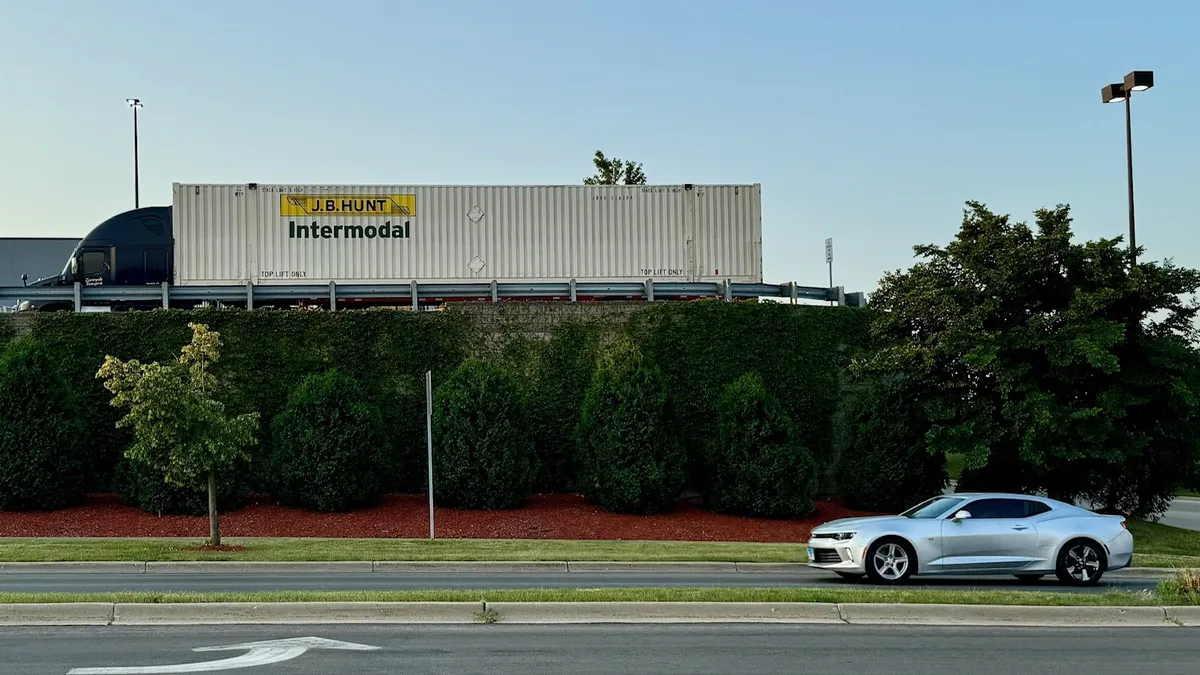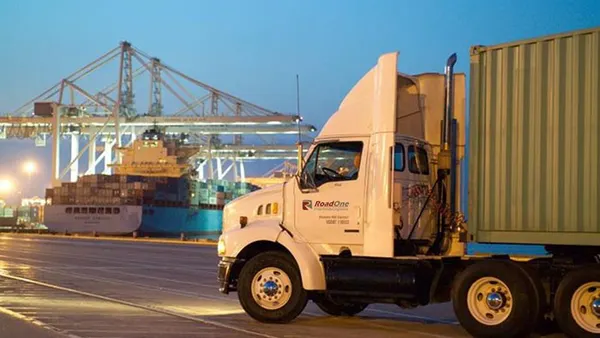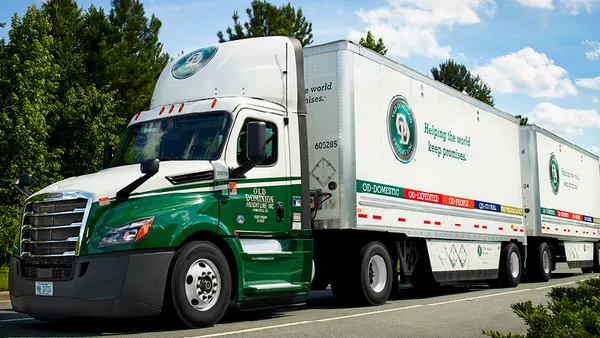Dive Brief:
- J.B. Hunt Transport Services saw its Q2 operating income tumble 24% to $205.7 million year over year, with executives citing a weak freight market that has persisted for two years on an earnings call Tuesday.
- The carrier’s intermodal, truckload and dedicated contract services each reported quarterly volume declines, while its Integrated Capacity Solutions brokerage segment saw the steepest drop at 25%. Its final mile business was the lone bright spot, reporting revenues of $235 million, a 5% increase from a year ago, thanks to new contracts.
- Executives are optimistic the second half of the year could be more predictable, however. “April started a little slower from a demand perspective, primarily due to the timing of Easter,” said Spencer Frazier, EVP of sales and marketing. “But we did experience what used to be a typical end of month and end of quarter lift in June.”
Dive Insight:
As trucking companies wait for the freight market to recover, J.B. Hunt is focused on investing resources in areas to drive more business to intermodal, its largest business unit.
Its intermodal segment experienced a Q2 revenue drop of 5% from a year ago on 1% decline in volume, but the carrier is preparing for the next cycle. Earlier this year, J.B. Hunt acquired Walmart’s intermodal assets, which was estimated to grow the carrier’s intermodal fleet by 15,500 containers. EVP and President of Intermodal Darren Field said those containers as well as its own are not being fully utilized but are ready to be deployed as demand grows.
The added capacity means the carrier can handle as much as 20% more than previously, Field said.
Meanwhile, the carrier reported its transcontinental intermodal network loads increased 4% for the quarter, but its eastern network experienced a 7% drop compared to a year ago.
Field told analysts the carrier’s West Coast intermodal volumes grew “double digits” in Q2, a good indication for a potentially better second half and peak season.
Shelley Simpson, leading her first earnings call since taking over as CEO on July 1, said shippers have made strides to better manage inventory, which may be fueling the return of seasonal shipping trends experienced prior to the COVID-19 pandemic.
“We’re encouraged with more seasonal demand similar to what we’ve seen pre-pandemic,” Simpson said. “This looks and feels more like pre-2020.”












